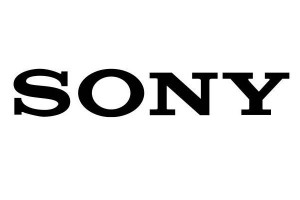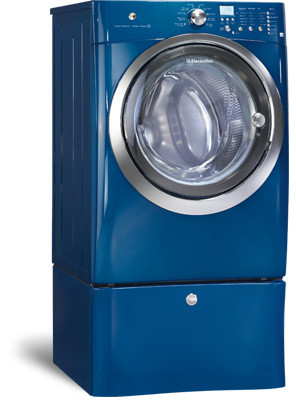 Top Class Action Lawsuits
Top Class Action Lawsuits
So who’s NOT talking about Sony’s decisions this week…chief among them, an alleged decision to risk a data breach rather than upgrade their software to prevent hacking. At least that’s what past and present Sony employees are alleging in their proposed data breach class action lawsuit filed this week—the first of 3 such lawsuits.
The complaint, filed against Sony Pictures Entertainment Inc., claims the recent data breach which resulted in employee data theft, could have been prevented. Well, wouldn’t that have changed the course of history…
The data breach has resulted in a situation former employees claim is “better suited to a cinematic thriller than to real life.” Specifically, the class action lawsuit alleges Sony failed to take adequate precautions to prevent the massive data breach and protect the personal information of more than 15,000 employees, both past and present.
“Sony failed to secure its computer systems, servers and databases despite weaknesses it has known about for years” the complaint states. “Their most sensitive data, including over 47,000 Social Security numbers, employment files including salaries, medical information, and anything else that their employer Sony touched, has been leaked to the public, and may even be in the hands of criminals.” The lawsuit cites an email from Sony’s general counsel, among other internal documents obtained in the leak, that expresses concern that the company’s network security and email retention policies left it vulnerable to an attack, such as the one it has now suffered.
The lawsuit also claims that Sony had previously suffered cyberattacks, including a data breach in 2011 where hackers gained access to the company’s PlayStation Network and Qriocity systems, exposing up to 31 million user’s data. Remember those? They were consolidated and settled for $15 million in games, online currency and identity theft reimbursement. However, according to the current lawsuit, the security issues were not resolved. Way to go.
Here’s the stunner: according to the lawsuit, rather than remedying the ongoing security concerns fully, Sony executives “made a business decision to accept the risk of losses associated with being hacked” rather than pay for expensive system upgrades. “If only Sony had heeded its own advice in time,” the complaint says.
Initially, current Sony employees were offered identity theft monitoring, this was eventually extended to 12-month coverage by a third party to ex-employees. The lawsuit states the delay was unfair to ex-employees, some of whom, including the two class representatives, already purchased expensive identity theft monitoring packages.
According to the complaint, Sony’s ex-employees call the company’s deal inadequate, noting that the credit monitoring and insurance it provides cannot prevent identity fraud, only inform them when it happens. Additionally, the lawsuit alleges that federal agencies have acknowledged that hackers sometimes hold stolen data for over 12 months and that identity fraud can continue to be a threat for many years.
Consequently, the Sony data breach class action lawsuit seeks more substantial protections, including credit card and banking monitoring services for five years, as well as identity theft insurance and credit restoration services, also for five years. The suit asks the court to force Sony to do more to address the potential identity fraud that may follow those affected by the breach indefinitely.
The proposed class includes current and former employees whose personal information was compromised in the leak, including two subclasses in Virginia and California.
The case is Corona et al v. Sony Pictures Entertainment, Inc., case number 2:14-cv-09600, in the U.S. District Court for the Central District of California.
Is Graco’s Child Seat a Child Trap? A proposed defective products class action lawsuit pending against Graco Children’s Products Inc, over allegations that their children’s car-seats have defective belt buckles, got greenlit this week.
Filed in March 2013 by plaintiff Seth Long, the Graco class action alleges violations and claims under the California Consumers Legal Remedies Act and Unfair Competition Law, and breach of implied warranty under the Song-Beverly Consumer Warranty Act and the federal Magnuson-Moss Warranty Act.
In February 2014, Graco issued a recall of 3.7 million forward-facing toddler seats due to alleged defects with the buckles, which could become so plugged up with food, juice, formula or vomit that they won’t open, according to Long’s complaint. According to court documents, the defective buckles may become stuck in the latched position, making it harder to pull a child out of the car. In July, Graco added a further 1.9 million car seats to the recall.
The National Highway Transportation Safety Agency published a series of reports on the defective car seats at the time of the February recall, and stated that it had been investigating the belt buckles since 2012. Among the problems the Agency encountered during testing were that the buckles would become impenetrable and parents would have to pick up the child and the seat, which together could weigh over 70 pounds, to lift it out of the car in the event of an emergency.
Well, that’s certainly no selling point. FYI, Graco appears to be no stranger to defective product lawsuits—they’ve also faced class actions over allegedly defective cribs, strollers and highchairs…
This particular case is Seth Long v. Graco Children’s Products Inc., case number 3:13-cv-01257, in the U.S. District Court for the Northern District of California.
Top Settlements
Comcast to cough up $50M to end a decade-long consumer antitrust class-action lawsuit brought by consumers who allege the cable-TV service provider engaged in anti-competitive behavior.
This week, a federal judge in Philadelphia has approved a preliminary US$50 million settlement that entitles about 800,000 current and former Comcast cable-TV subscribers in Bucks, Chester, Delaware, and Montgomery Counties and Philadelphia to US$15 in credits, or Comcast services valued at US$ 30-43.90, according to court documents.
FYI—those services include temporary internet upgrades, six free pay-per-view movies, or two free months of the Movie Channel. Comcast is required to notify its customers in monthly bills and to advertise the settlement in newspapers and magazines throughout the Philadelphia region. A Comcast spokesperson said that former Comcast cable-TV customers in the five counties could also participate in the settlement, if they were subscribed between 1 January 2003, and 31 December 2008. They will be eligible for US$ 15 in cash.
The suit, first filed in Philadelphia federal district court in December 2003, claimed that Comcast engaged in anti competitive behaviour by concentrating its cable systems in the broader Philadelphia area and making it difficult for RCN, a competitor, to expand telecommunications services here. Comcast could charge higher prices for its cable-TV service, the suit claimed.
Hokee Dokee—That’s a wrap folks…Time to adjourn for the week. Have a good one!









